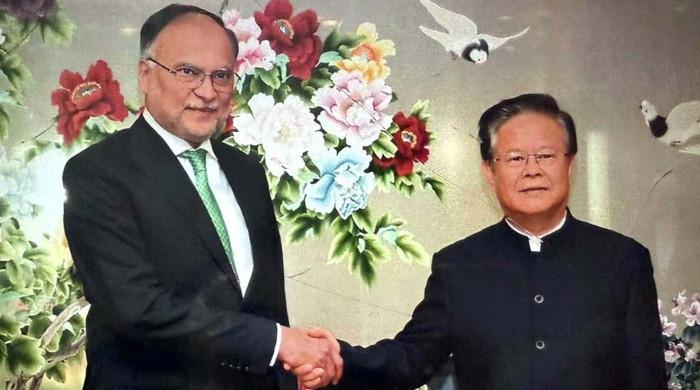- IPP payment questions still unresolved at JCC.
- ML-1, KKH adjustment Top Phase-II priorities.
- Updated long -term plan due within 90 days.
Islamabad: The 14th Common Cooperation Committee (JCC) from the China-Pakistan Economic Corridor (CPEC) wrapped in Beijing Friday without a breakthrough on long-based capacity payments to Chinese independent power producers (IPPS), The news reported.
Still, the session marked a milestone, which formally introduced the partnership in CPEC-phase-II. The Federal Minister of Planning and Development Ahsan Iqbal said: “Together these priorities will transform CPEC into a corridor of industrialization, technology, sustainability and shared prosperity.”
These goals are rooted in the September 2025 action plan to build a closer China-Pakistan community with a common future.
The plan maps a broad agenda that spans industrial cooperation, special economic zones, modernization of agriculture, maritime development and mining, together with flagship connection schemes including ML-1 Railway Modernization, Karakoram Highway (KKH) conversion and continued development of Gwadar.
However, the sources said the Chinese IPPS problem could not be solved as Islamabad wanted to extend the repayment period. On the partial financing of the ML-1, China is asking Islamabad for a specific commitment before they completed the financing agreement in connection with the ongoing IMF program.
The planning minister delivered the final remarks and highlighted the shared vision, renewed determination and ambitious roadmap that will shape the next step in this transformative initiative.
Minister Ahsan contacted the National Development and Reform Commission (NDRC) Zhou Haibing, Chinese hosts, and delegated and expressed a heartfelt gratitude for the wisdom and commitment that has defined JCC’s considerations.
He emphasized that the 14th JCC was not only a review of previous progress, but a confirmation of the collective decision to elaborate on the cooperation and build a future with shared wealth.
Highlighting the future agenda noted the minister that CPEC-phase-II will be driven by the five corridors of growth, innovation, green development, livelihood and regional connection.
These will be in line with Pakistan’s Uraan 5es frame for export, e-Pakistan, Energy & Environment and Equity & Empowerment. Minister Ahsan Iqbal emphasized the urgent nature of implementing ML-1 and KKH adaptation and noticing their strategic significance for uninterrupted connection between Pakistan and China.
He emphasized that early implementation of these projects would yield far -reaching financial benefits for the entire region. To ensure sustained momentum, he suggested to hold JCC meetings every six months and convene joint working groups quarterly in the first three years of phase-II. This institutional strengthening, he said, will guarantee effective coordination, timely decision -making and result -oriented progress.
Recognizing the geopolitical challenges and propaganda of anti-CPEC forces called on the minister’s Swift agreement on JCC minutes to send a strong signal of unity and determination. He announced that Pakistan and China had agreed to publish an updated CPEC long-term plan within 90 days, reflecting the convergence of Pakistan’s 5Es with the five corridors in CPEC 2.0.
Ahsan Iqbal, a soothing Chinese partners, confirmed Pakistan’s unwavering commitment to the security and security of all CPEC projects and any Chinese national working in Pakistan. He described CPEC not only as a developmental initiative, but as a symbol of the iron -clad friendship between Pakistan and China, supported by trust, stability and mutual respect.
“CPEC is about making China and Pakistan not only friends from All-Weather, but also partners in high quality development and innovation in the 21st century,” he said.
The conclusion of his comments expanded deep gratitude to the leadership of both countries, NDRC and all delegates for their invaluable contributions. With renewed determination, he expressed confidence that the next decade of CPEC would bring even greater transformation than the last.
He suggested that the 15th JCC meeting be held in May 2026 in Islamabad, coinciding with the 75th anniversary of diplomatic relations between Pakistan and China, which further cemented the historical ties between the two nations.



